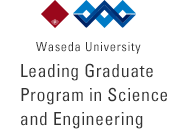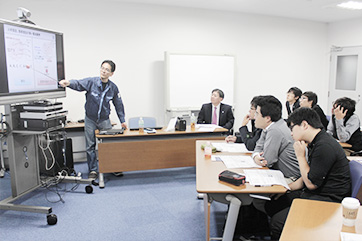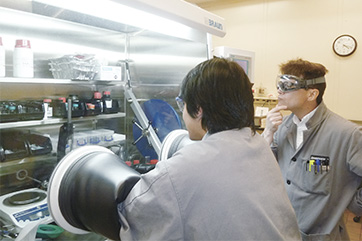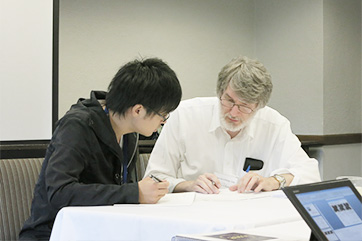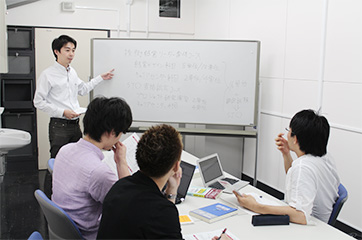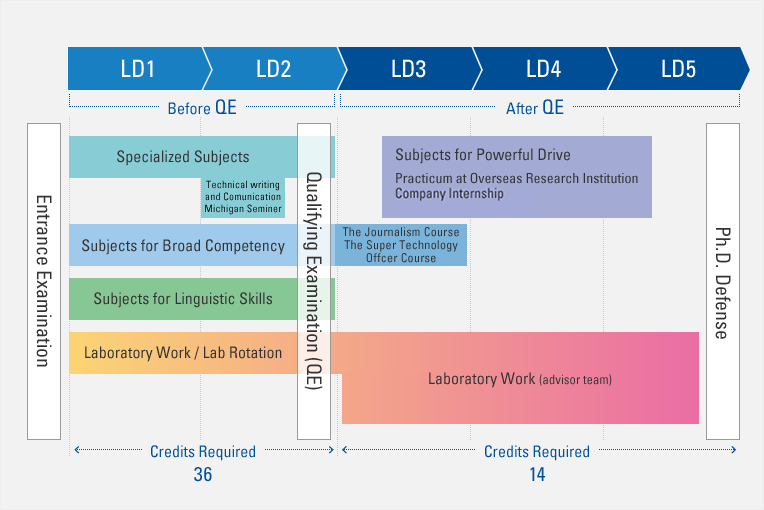
- This program does not separate Master’s and Doctoral program and so gives students more time to devote to diverse seminars and research than other courses.
- With the flag of "Energy-Next", 35 faculty members including some supervisors from other departments and industrial sectors are responsible for educating the students.
To qualify for the examination, students must submit a paper published in an academic journal, and are screened by a panel including faculty members from other fields and examiners from industrial sectors. - QE is administered to ensure that the student has acquired the necessary specialized capabilities.
(This program does not award a Master’s degree.) - Industrial Advisors who are people from industrial sectors work together for educating students after QE.
- Students defend their thesis in English to a panel including an oversea University faculty, to ensure an international standard quality of education.
